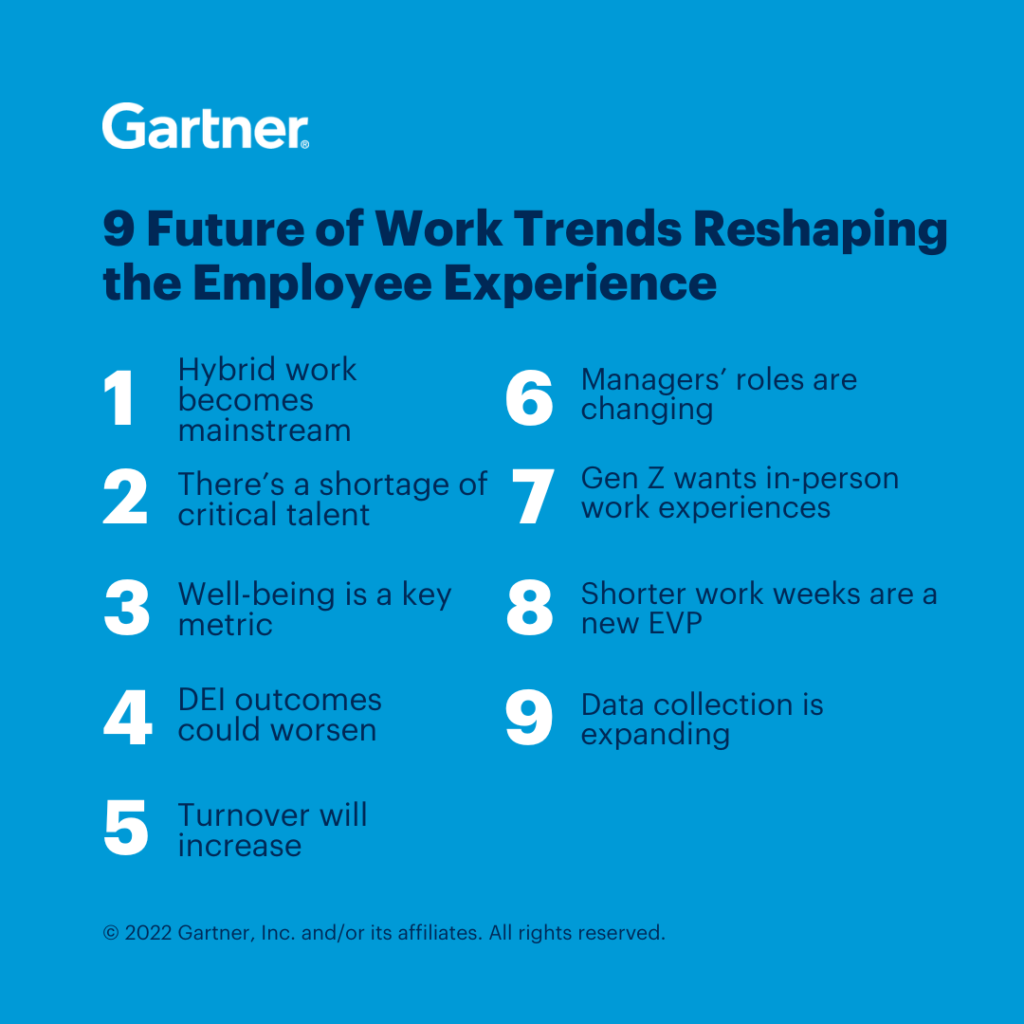by Rob Sheppard
[Approx. 4-minute read]You will be hard pressed to find someone NOT saying the COVID-19 pandemic didn’t just fundamentally alter the way we need to work, it also created a ‘jobs crisis’ we’ve not seen for decades.
The post-Covid work landscape certainly seems to be ‘super charged’ – global wars affecting supply chains, inflation not tipped to really fall until 2024 and a tight labour market we’ve not seen since the last jobs boom.
We recently discussed planning for the future of work in this new world and what it means for a business [read our article here] – now we turn our attention to understanding some of the trends in this future.
Why might you ask?
Simply because some of these trends can directly impact not just how to attract ‘talent’ but [more critically] how you can retain your people.
The FUTURE of work.
Previous discussions about this were heavily influenced by the opportunities to use technology in the ways humans worked.
In a post-Covid landscape, these concepts must now also embrace the ways we create more ‘agile’ and personalised alignment of our people to the organisation (and vice versa).

The future of work is creating and aligning the right practices for the business while simultaneously identifying the individual needs of our team members.
The future TRENDS of work.
There have been a number of researchers in the last 12 months specifically asking the question ‘what trends can we expect to see in the way we work?‘
Many of these thought leaders confirm that hybrid models of working (in one form or another) are here to stay – with technology and data also being key ingredients in this overall strategy.
To an extent, many industries have already figured this out for themselves as they tried to coax teams back to an office or two.
The research
Let’s start with a recognised and data driven researcher we follow: Gartner
Like many, their 2022 research identified factors we feel offer insights into how any size business can start to plan for the [immediate] future of work.

When we looked across other research on this topic, we found that some core factors started to appear:
- HYBRID work: when, where, and how to work
- FLEXIBLE hours: moving away from traditional ‘9-5’
- TECHNOLOGY: to move between the office and remotely
- BELONGING: to the work and the organisation
- INDIVIDUALS: considering the needs of our humans
- DATA: to track productivity and future trends
We also liked the findings of Gartner in particular as it supports something that Quantum Hr have been observing anecdotally across some of our Clients and industries.
The way Managers lead their teams is changing…

Managers must now intentionally form relationships that bring together an individual’s need for meaning in their work with the overall Purpose of the organisation.
Great Managers will already be performing this ‘intentional relationship building’ if they are first leading themselves, then their teams and then leading to the organisation [read our article on this here].
What Gartner’s research really underscores is that post-Covid Managers have to develop this skill very quickly… or find that their humans will go elsewhere for this type of manager.
PS: if you’re as old as Rob, you’ll remember when just forming ‘a’ relationship was the goal for any manager!
Beware the pitfalls
As you start to consider future trends of work for your business, it’s a great idea to also consider some of the potential risks that can arise.
These might include:
- Minimising silos of ‘those who work here’ versus ‘those who work remotely’.
- Unconscious bias in interacting more with those in the office versus those externally- and the effect this has on diversity, equity and inclusion. For example, selecting someone for a promotion or payrise simply because you see them more.
- Erosion of Culture, for example, the loss of ‘storytelling’ and ‘rituals’ that create a culture – that usually happen more easily in person.
- Security– given the recent cyber security breaches…. will you need to review security in a hybrid workplace?
Being prepared is half the battle as they say.

And if it’s all still confusing?
If you need help or have a sense this might be a future issue for you and your business, please click the link below and we’ll be happy to speak to you about any ideas this article has raised for you (or your team).
Thanks for reading!

